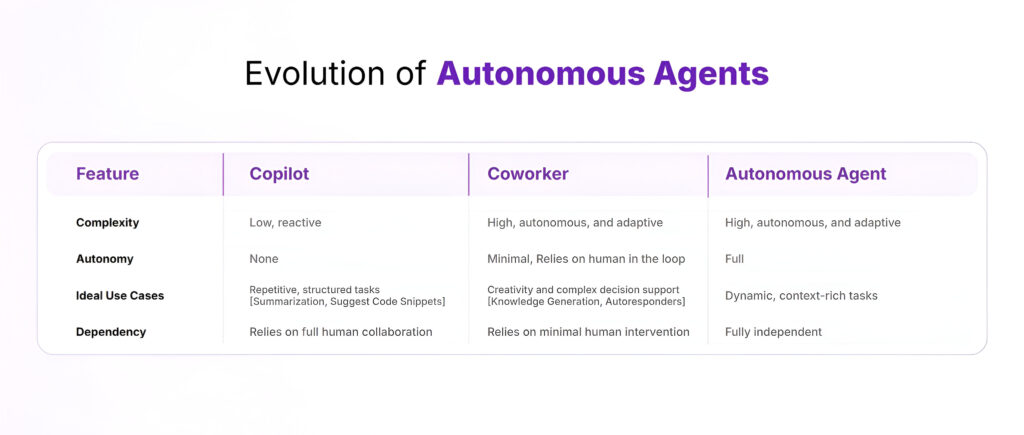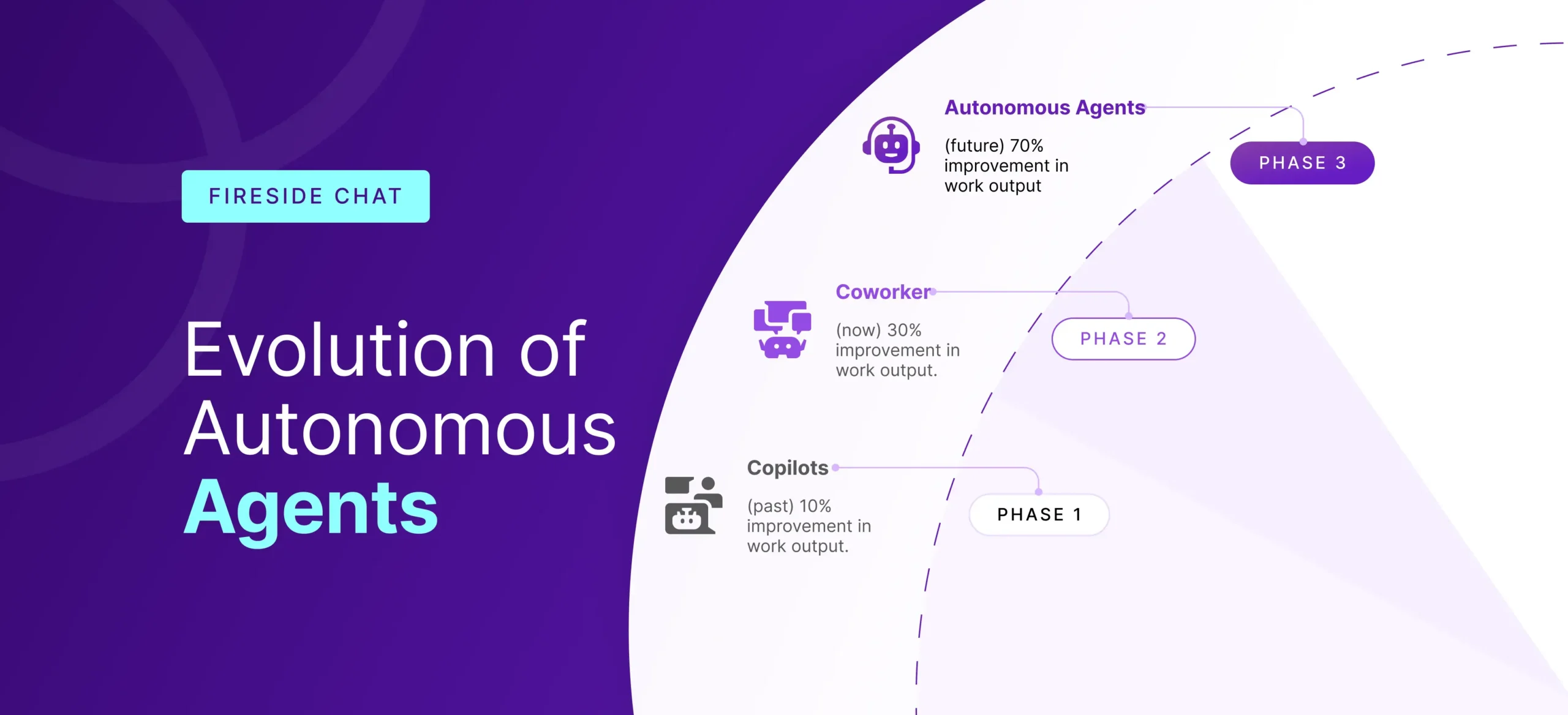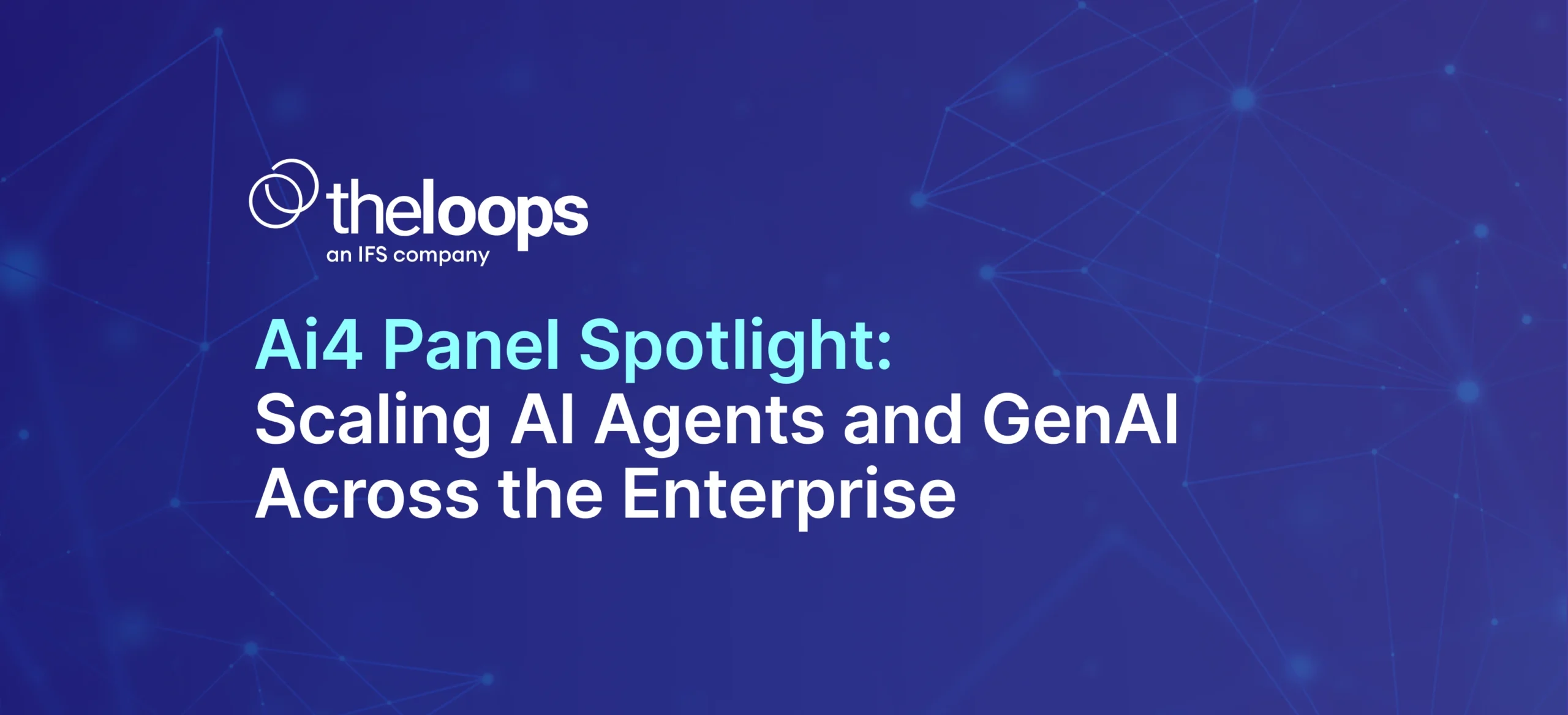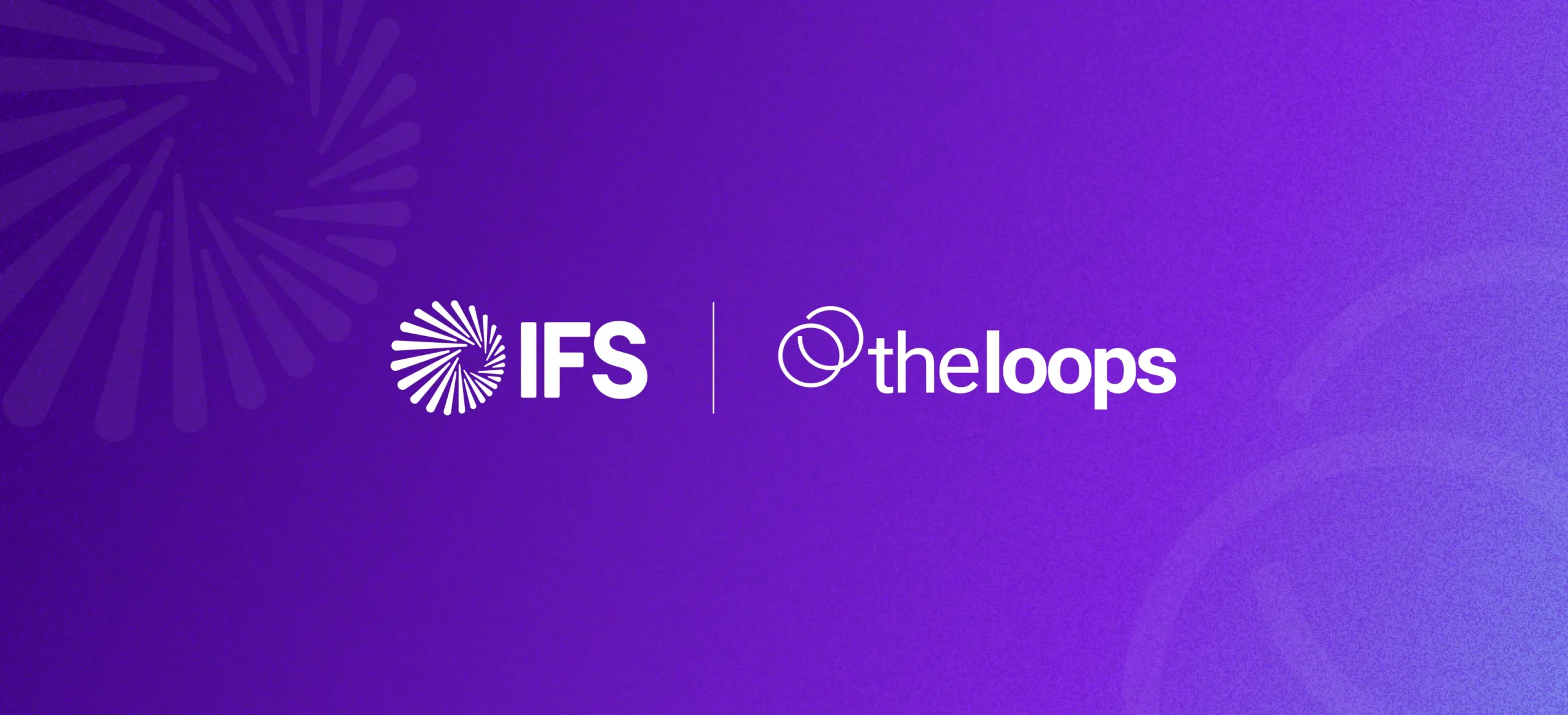This blog is a summary of TheLoops online event “AI Agents Explained”. Use this as a guide to help you and your CX team understand the pace at which AI Agents are evolving and how you can leverage them for your CX operations.
In an era where customer experience is a competitive advantage and operational efficiency is paramount, AI Agents are shaking up the CX landscape. For Support and CX leaders, understanding the differences across AI that’s ready to go—from copilots to autonomous agents—isn’t just about technology adoption; it’s about reimagining workflows, empowering teams, and most importantly, future-proofing operations. Drawing insights from a recent fireside chat with AI experts Ravi Bulusu (CTO & Co-Founder, TheLoops) and Matt Dunn (Head of CX, TheLoops) we break down the strategic value of AI Agents and what leaders need to know to stay ahead.

From Rule-Based Bots to Autonomous Agents: The Evolution of Automation
The journey from Robotic Process Automation (RPA) to AI-driven Agents marks a seismic shift in how businesses approach automation. As Ravi explains, “AI Agents are fundamentally automation… they solve basic automation. The difference is autonomy—they’re designed to achieve goals, not just follow rules.”
Traditional RPA systems were rigid, requiring meticulous programming for predictable tasks. AI Agents, however, leverage Large Language Models (LLMs) to “speak human,” enabling dynamic decision-making. For example, an AI Agent tasked with upselling can negotiate, adapt to customer cues, and execute actions using tools like APIs—all without predefined scripts.
Key Takeaway:
- Copilots assist agents with tasks like summarization or sentiment detection.
- Coworkers autonomously handle background work (e.g., updating KB articles, flagging feature requests).
- Autonomous agents (the future) manage end-to-end processes, like resolving tickets or driving upsells.

Why Strategic Adoption Matters: Beyond Ticket Deflection
While many organizations focus on deflection or cost reduction, Matt urges leaders to think bigger: “If you’re not already on this journey, the possibilities will outpace you. The mix of human supervision needed… really drops, freeing teams to focus on high-value work.”
AI Agents unlock efficiencies across the support lifecycle:
- Frontline Operations: Agents receive pre-validated ticket insights, slashing resolution time.
- Managerial Impact: Auto-QA monitors both human and AI Agent output, ensuring compliance and quality.
- Strategic Innovation: Lower costs (thanks to open-source models like DeepSeek) enable experimentation with once-prohibitive use cases.
QA: The Unsung Hero of AI Agent Success
As AI Agents take on more responsibility, quality assurance becomes non-negotiable. Ravi highlights a critical shift: “Auto QA is going to become imperative… You need runtime monitoring, not just design-time testing.” Much like Datadog for cloud systems, AI Agent QA will soon be a compliance staple.
Why This Matters:
- Risk Mitigation: Autonomous agents can err, necessitating real-time oversight.
- Scalability: Proactive QA ensures consistent performance as AI handles complex workflows.
The Pitfalls of Building In-House
Many organizations, eager to harness AI’s potential, consider building proprietary solutions in-house. While this approach promises control, it typically leads to costly pitfalls and expensive liabilities.
Why In-House Builds Struggle:
- Resource Intensity: Developing and maintaining AI Agents requires massive investments in talent, infrastructure, and continuous training—resources that most support teams simply don’t have.
- Rapid Obsolescence: AI technology evolves faster than internal teams can adapt. Matt warns, “By the time you’ve built a solution, the technology has already leapfrogged. Platforms evolve; static codebases stagnate.”
- Tooling Gaps: AI Agents need seamless integration with CRM, ticketing systems, and knowledge bases. Most companies lack the sophisticated API ecosystems and modular architectures to support this effectively.
The Platform Advantage
In contrast, established platforms like TheLoops eliminate these complexities by providing pre-built tooling, compliance safeguards, and automatic updates. Rather than reinventing the wheel, leaders can concentrate on what matters—improving MTTR, scaling autonomous workflows, and achieving strategic goals—while the platform deliver faster ROI through battle-tested frameworks that evolve with AI technology.
3 Steps to Start Your AI Agent Journey
- Audit Your Toolbox: Expose APIs and integrate systems to empower AI Agents.
- Prioritize QA: Implement Auto-QA to monitor both human and AI interactions.
- Think Goals, Not Tasks: Shift from replicating manual processes to enabling goal-driven automation.
Conclusion: The Time to Act is Now
The AI Agent revolution isn’t looming—it’s here. As Matt notes, “Be ambitious. The technology can help you leap ahead.” Whether you start with copilots or aim for autonomous workflows, the key is to begin. Organizations that delay risk falling behind as competitors harness AI to redefine CX efficiency and innovation.
Ready to Explore AI Agents?
TheLoops offers tailored solutions to navigate this evolution. Join our next fireside chat to hear how leaders like Marina Quintanilla and Kenji Hayward are driving AI-powered CX transformations.
“The future belongs to those who automate with autonomy.” — Ravi Bulusu



